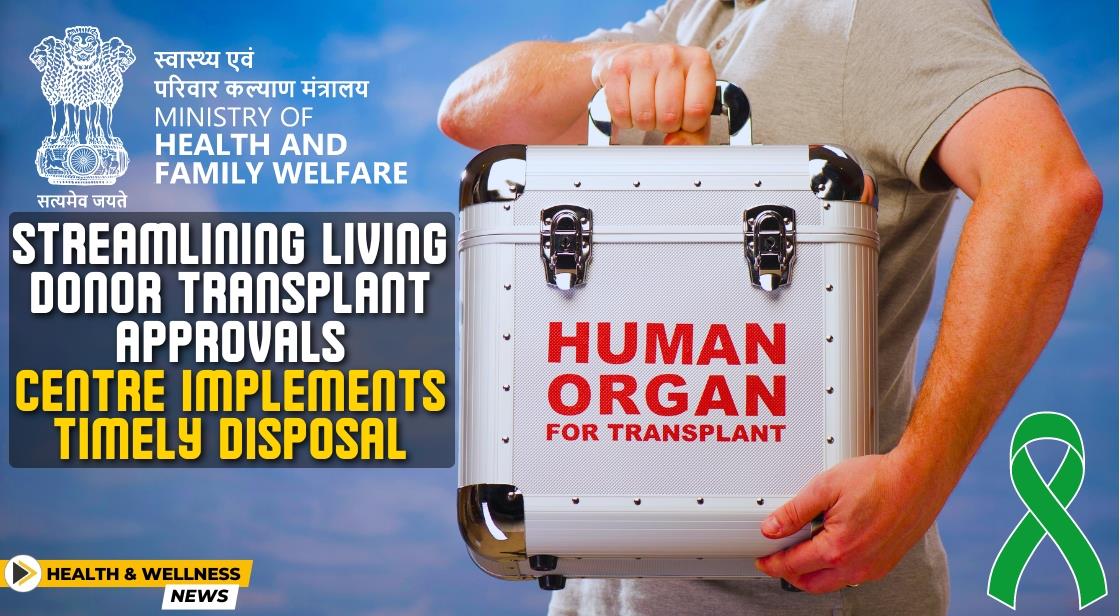Streamlining Living Donor Transplant Approvals: Centre Implements Timely Disposal

News Synopsis
In a significant move towards expediting the living donor organ transplantation process, the Union Government has mandated a precise timeline for health authorities across States and Union Territories. This initiative stems from a directive issued by the Delhi High Court earlier this year, emphasizing the need for swift decision-making in such critical cases.
Setting Clear Timeframes: Faster Decisions for Patients
Following a Delhi High Court order, the Union Government has established a new timeline for processing applications for living donor transplants:
-
Six to Eight Weeks: Health authorities in states and union territories are now mandated to reach a decision on transplant applications within six to eight weeks. This timeframe applies from the submission of all required documents.
-
Improved Efficiency: The Ministry of Health & Family Welfare expects this timeline to significantly reduce waiting times and expedite access to transplants for patients.
Authorisation Committee Responsibilities: Defined Procedures
The new guidelines also clarify the responsibilities of Authorisation Committees, which play a crucial role in approving living donor transplants:
-
Application Review and Interviews: Authorisation Committees must review applications within 10 days of receiving all necessary documents. This includes scheduling interviews with both the donor and recipient within seven days.
-
Decision and Transparency: The Committee's decision on the application must be published on the hospital's website within 24 hours of the interview.
Upholding Ethical Practices: E-Aadhaar Verification and Donor Protections
The Ministry of Health emphasizes the importance of ethical organ transplantation practices:
-
E-Aadhaar Verification: Mandatory e-Aadhaar verification is now required to confirm the identity of both donors and recipients. This applies to near relatives (parents, children, siblings, spouse) as well as non-relative donors.
-
Minor Donor Considerations: Donation from a minor living donor is strictly prohibited without prior approval from the Appropriate Authority and the state government. Stringent guidelines established by the Government of India govern such exceptional cases.
-
Preventing Foreigner Exploitation: The Centre reiterates the existing rule – Indian citizens cannot donate organs to foreign recipients unless they are near relatives. This regulation aims to prevent exploitation within the organ transplant system.
A Response to a Critical Need: Addressing Waiting Lists and Loss
The new regulations are a direct response to a critical need in India's healthcare system:
-
Amar Singh Bhatia Case: The Delhi High Court case of Amar Singh Bhatia, a former Air Force personnel suffering from chronic kidney disease, highlighted the issue of prolonged waiting times. Mr. Bhatia tragically passed away while awaiting a decision on his application for a living donor transplant.
-
Reduced Waiting Times: The court emphasized the detrimental effects of extended wait times, causing mental and physical anguish for patients and families. The new timelines aim to prevent similar situations and expedite access to transplants.
The implementation of these streamlined procedures and stricter regulations signifies a positive step towards improving the efficiency and ethical practices surrounding living donor organ transplants in India.
Conclusion
With the enforcement of a structured timeline and adherence to regulatory guidelines, the Union Government aims to streamline the living donor transplant process, ensuring timely decisions and reducing undue waiting periods for patients in need. This initiative not only aligns with legal directives but also prioritizes the well-being of donors, recipients, and their families in critical healthcare situations.
You May Like









